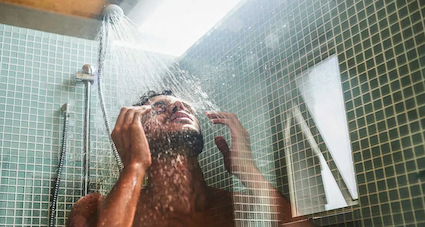About a decade ago, with the guidance of a friend who is also one of the best brains in the country on pragmatic bio-diversity, co-existence and survival by adaptation, we bought a small apartment in a village in the foothills of the Western Ghats. My friend, an ex-seafarer like myself, insisted on checking out the water flow below the surface of the land in and around the gated community, as also the status of the old but well-maintained well on the premises.
A few months later, when we were fitting out the apartment, we opted to buy a water filter (not a reverse osmosis machine or RO) and the installation person, as part of his work-order, took a sample of the well-water we were going to use as well as the municipal – panchayat water. Coming from Delhi, and a lifetime of watching municipal water trickle through weakly via taps at random hours, usually unearthly, this dual option was a huge luxury – especially since the well water which we had been told was much better for drinking, was drawn up by a simple hand operated water wheel.
The next day the seniormost person from the water filter company called up and sought a good time to visit us. We were a bit concerned, also because we were amongst the first to actually move into the gated community, so we looked forward to his visit with some amount of trepidation. As things emerged, the gent had actually visited us to see if there were any more apartments available, solely on the basis of the results of the water drawn from the well. Being in the water business, he also understood the way the contours and cartography of the location we were at worked throughout the year, and that was just about the primary reason for him to select the gated community for his future retirement plans.
Having grown up in military and railway towns mainly across East and North-East India in the ’50s and ’60s, coming to Delhi as a pre-teen was the first time I enjoyed the luxury of comparatively lots of water from a tap and sometimes, in addition, a shower, though with an eye on the consumption at all times. The Training Ship did not give us the luxury of long extended showers, and life at sea was probably the first time many of us realised that long showers taken for granted by us on ships where the Fresh Water Generators working on surplus heat generated by the main engine were able to meet the needs, were not the norm in many parts of the world – including some of the European countries.
North America, with its obsession for showers, was an exception. I saw there, for example, unlimited fresh water showers on sea-beaches. Not a sign of a bucket and mug anywhere. Comes as a huge wake-up call now from friends in coastal North America and inland points writing in about water scarcity and controlled usage.
The media flurry on climate change lately appears to be finally reaching the bathrooms of the privileged continent of North America. Maybe everyone needs to revert to bucket, mug and bathing while squatting again.
Much of the debate is about rising temperatures, melting glaciers and extreme weather. But are you ensuring your water supply for the next few decades as you seek out habitats? Ask yourself that, I leave you, gentle reader, with a question this time – what are you doing about water?
Veeresh Malik was a seafarer. And a lot more besides. A decade in facial biometrics, which took him into the world of finance, gaming, preventive defence and money laundering before the subliminal mind management technology blew his brains out. His romance with the media endures since 1994, duly responded by Outlook, among others.
A survivor of two brain-strokes, triggered by a ship explosion in the 70s, Veeresh moved beyond fear decades ago.


